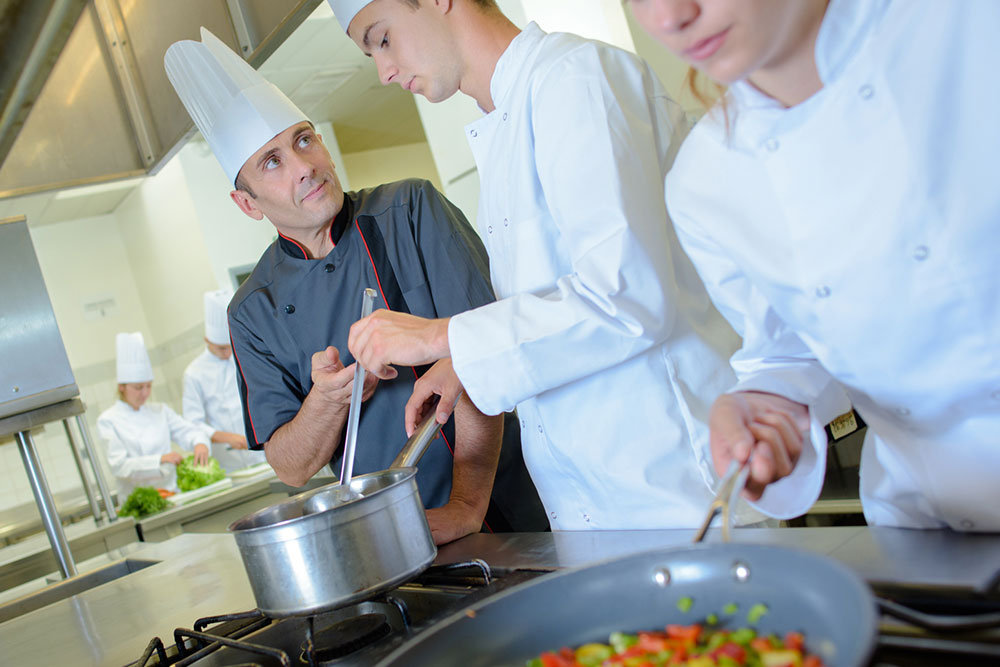6 Things to Know Before Applying for Online Culinary Courses
Signing up for and going through a culinary course online can open up many doors for one’s career. For some, the program might simply be a way to learn something new to try out in one’s spare time. Most courses are usually comprehensive, while some specialize in advanced cooking techniques. Although signing up for a culinary course might be straightforward, it is important to keep various things in mind before applying.
1. The accreditation
One of the first things to consider when choosing a culinary school is its accreditation. For instance, the American Culinary Federation (ACF) is the top professional chef’s organization and is also responsible for overseeing the performance of culinary schools, including those offering online courses.

2. The course type
Before one applies for an online culinary course, it is important to determine what one wants to do. Whether one wants to be a culinary chef, focus on international cuisine, or simply learn some new recipes, there’s a course for each avenue.
3. Age of the school
When looking for an online culinary course, it is important to consider the age of the school offering the program. With an increased interest in culinary schools, several private establishments create courses overnight to meet demand. However, ACF accreditation does not come overnight; it takes a consistent track record of quality training for a culinary school to receive the certification. So, signing up for a course offered by an older culinary school might have more value, especially when the costs are higher. Moreover, the longer a school has existed, the broader the alumni network will be, which could also increase one’s chances of securing a job after course completion.
4. The enrollment process
The enrollment process for most online culinary courses is usually straightforward. Apart from a few different requirements, most of the steps are similar. Some culinary art schools might ask for a high school diploma for one to be eligible for the course. Others may look for experienced individuals with hands-on kitchen experience for at least one or two years. Other culinary schools might require one to take a series of assessment tests to identify if the candidate is eligible for the course. One should always review the course criteria before applying since some courses might ask for a small fee to fill out an application.
5. The reviews
Just like researching and reading reviews before making reservations at a restaurant for dinner, one should read reviews before applying to an online culinary course. Reading feedback from users who have previously taken the course and those currently enrolled in programs will help determine if a course is the right choice for one’s needs.
6. The cost
When considering a career in the culinary industry, it’s important to keep in mind that entry-level food service jobs may not offer high pay. Additionally, the cost of education can be a significant investment. Some culinary schools may charge about $40,000 or higher for their courses, which could be excessive for many applicants. Moreover, some of these courses might not even be accredited by the ACF. To manage costs, one could look into local community colleges that offer ACF-accredited culinary programs at more practical prices. For instance, some programs in various states may cost residents as low as $1,300 for the culinary course. One could also look for other ways to save on course fees. A few options include:
- Culinary scholarships
Those applying for culinary school and want to save costs should check if they are eligible for culinary scholarships. These typically offer over $1.2 million in culinary and food services scholarships to eligible students each year, including graduating seniors. If one is a high school student, one could participate in cooking competitions during the academic year, which may offer winnings in scholarships.
- Financial aid
Federal financial aid can help pay for an online culinary course, making it more affordable. The aid combines grants and student loans to enable students to access culinary education each year. One should fill out the Free Application for Federal Student Aid (FAFSA) to check if one qualifies for federal aid. It could help many students determine if they are eligible for funding Direct Loans, PELL Grants, and Parent PLUS loans.

